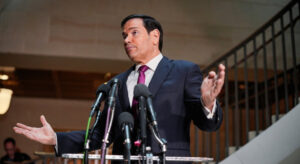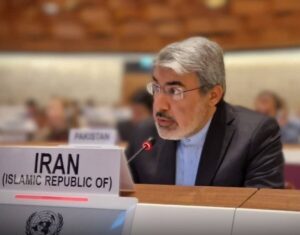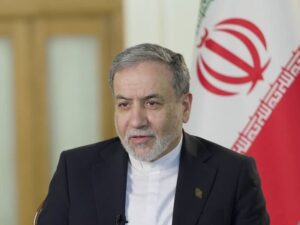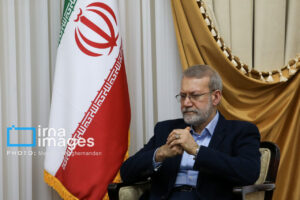The doctrine of abus de droit in international law prohibits the abusive exercise of treaty rights, particularly when such conduct subverts the object and purpose of an agreement or violates the principle of good faith. This principle has gained renewed relevance in light of the conduct of the E3—France, Germany, and the United Kingdom—regarding the Joint Comprehensive Plan of Action (JCPOA). Although the E3 have threatened to trigger the JCPOA’s Dispute Resolution Mechanism—self-servingly referred to as “snapback,” as if it were a tool for arbitrary enforcement—their own actions raise serious legal and moral concerns. These include their endorsement of unlawful military strikes against Iranian nuclear facilities and their persistent failure to fulfill their obligations under the agreement.
This article examines how the doctrine of abus de droit, as developed in international law and elucidated in World Trade Organization (WTO) jurisprudence, applies to the E3’s actions. It draws upon foundational principles of treaty law, WTO dispute settlement jurisprudence, and general rules of good faith and fair dealing to argue that the E3’s invocation of “snapback” sanctions would constitute an abuse of right and a breach of their obligations under international law.
The legal foundation: Good faith and the doctrine of Abus de Droit
At the heart of international law lies the principle of pacta sunt servanda, enshrined in Article 26 of the Vienna Convention on the Law of Treaties (VCLT): every treaty must be performed in good faith. Article 31(1) further mandates that treaties must be interpreted in good faith in accordance with the ordinary meaning of their terms, in their context and in light of their object and purpose.
The doctrine of abus de droit emerges from this legal architecture. It holds that a state may not exercise a treaty right in a manner that is contrary to the object and purpose of the treaty or that defeats the reasonable expectations of the other parties. The International Court of Justice (ICJ) has affirmed this in cases such as the Namibia Advisory Opinion, where it held that a party that violates its obligations under a treaty cannot continue to claim the benefits of that treaty.
In more specific contexts, the United Nations Convention on the Law of the Sea (UNCLOS) explicitly prohibits the abuse of rights in Article 300, requiring that rights be exercised in a manner that does not defeat the purpose of the Convention.
WTO jurisprudence on abusive exercise of rights
The WTO dispute settlement system offers a robust body of case law on the principle of abus de droit, particularly through interpretations of the good faith requirement under the Dispute Settlement Understanding (DSU).
Article 3.10 of the DSU requires that all members engage in the dispute settlement process in good faith. The Appellate Body (AB) in US — Foreign Sales Corporations (FSC) characterized this obligation as a manifestation of a broader principle of international law.
In US — Shrimp (WT/DS58/AB/R), the AB interpreted the chapeau of GATT Article XX—which prohibits measures applied in a manner constituting arbitrary or unjustifiable discrimination—as an expression of the principle of good faith. The AB explicitly invoked the doctrine of abus de droit, holding that a state cannot exercise its rights under an exception in a way that undermines the treaty’s obligations. In that case, the United States’ environmental measures were struck down not because of their stated objective, but because of the discriminatory and rigid way they were applied.
Similarly, in Brazil — Retreaded Tyres (WT/DS332/AB/R), the AB reiterated that the chapeau of Article XX serves to prevent abuse of rights. Brazil’s import ban was justified in principle under the health exception but was found to be applied inconsistently and discriminatorily, thus violating WTO rules.
The Russia — Traffic in Transit case (WT/DS512/R) went further by applying the good faith principle to self-judging clauses such as the national security exception. The panel held that even in invoking national security, a state must do so in good faith and not as a pretext. This decision confirmed that no treaty right, not even one as sensitive as national security, is beyond the reach of the principle of good faith.
The JCPOA framework and the DRM mechanism
The JCPOA, endorsed by UN Security Council Resolution 2231 (2015), created a comprehensive framework for resolving disputes and monitoring Iran’s nuclear program. The Dispute Resolution Mechanism (DRM) in paragraph 36 of the JCPOA requires parties to raise any concerns within the Joint Commission before pursuing escalation.
The so-called “snapback” mechanism, detailed in Resolution 2231, was designed as a last resort, allowing participants to reimpose UN sanctions in the event of a material breach. However, this right is not absolute. Under general principles of international law—including abus de droit—it must be exercised in good faith and in a manner consistent with the agreement’s underlying purpose: to restrict Iran’s nuclear activities while upholding its right to enrich uranium at agreed levels, in exchange for effective sanctions-lifting, all with the aim of preserving international peace and security through diplomacy.
Indeed, paragraph 11 of UN Security Council Resolution 2231 explicitly links the snapback process to the requirements in paragraph 36 of the JCPOA. That paragraph provides that a participant may refer an issue to the Security Council only if it “believes that the issue constitutes significant non-performance of commitments under the JCPOA.”
However, the remaining parties to the JCPOA would have no good-faith basis to claim that Iran is in “significant non-performance of commitments,” as Iran’s so-called “non-performance”—namely, the scaling back of its JCPOA obligations—constitutes lawful remedial action taken in response to the other parties’ prior non-compliance. In other words, if Iran’s measures are undertaken within the framework of the conflict-resolution mechanism embedded in the agreement, the remaining parties cannot, in good faith, believe them to constitute “significant non-performance.”
The E3’s conduct: A case of abusive exercise of rights
Despite formally remaining in the JCPOA, the E3 have taken positions and supported actions that directly contradict the agreement’s object and purpose. Following the U.S. withdrawal in 2018 and the subsequent imposition of “maximum pressure” sanctions, the E3 failed to uphold their obligations to facilitate economic normalization with Iran.
Worse still, in the wake of coordinated military strikes on Iranian nuclear facilities in June 2025—which were unlawful under the UN Charter and peremptory norms of jus cogens, and which targeted sites under JCPOA monitoring—the E3 chose to endorse the actions. This position profoundly undermines their moral and legal credibility. By supporting or acquiescing to the use of force in clear violation of fundamental international legal norms, the E3 effectively stripped Iran of the JCPOA’s protective framework, while simultaneously calling for an outright “end” to its nuclear program.
Iran has consistently invoked the DRM in response to E3 and U.S. non-compliance. However, instead of addressing Iran’s grievances through the Joint Commission, the E3 have positioned themselves as enforcers of the deal, threatening to reimpose UN sanctions through snapback—a mechanism they helped render dysfunctional.
This conduct bears the hallmarks of abus de droit. As WTO jurisprudence teaches, a party that undermines a treaty cannot subsequently invoke its benefits in a way that compounds the damage. Just as in US — Shrimp, where the environmental justification could not mask discriminatory application, the E3’s invocation of snapback cannot be shielded by the formal language of the JCPOA when their conduct betrays its spirit.
Legal and normative consequences
Legally, the E3’s attempt to trigger snapback after undermining the JCPOA could be challenged as an invalid or bad-faith invocation of the mechanism. The ICJ’s Namibia principle supports the view that a party in material breach loses the ability to enforce corresponding rights under the same agreement.
Normatively, the E3’s conduct erodes the very legitimacy of the rules-based order they claim to uphold. Just as the integrity of the WTO system depends on members engaging in dispute settlement in good faith, the JCPOA likewise rests on a genuine commitment to its conflict-resolution procedures. Resorting to the snapback mechanism in bad faith would not only violate core legal principles but also undermine the authority of Security Council Resolution 2231, which explicitly endorses the JCPOA and recognizes Iran’s right to enrich uranium.
The abuse of rights doctrine thus serves both a legal and ethical function: it protects the coherence of international agreements and prevents powerful actors from manipulating treaty mechanisms for coercive or hypocritical ends.
Conclusion
The E3’s posture toward the JCPOA—failing to uphold their commitments, tolerating unlawful force against Iranian facilities, and threatening to invoke snapback sanctions—constitutes a textbook case of abus de droit. WTO jurisprudence, notably in US — Shrimp, Brazil — Tyres, and Russia — Transit, confirms that good faith is a binding legal obligation, not a mere aspiration.
International law requires coherence between rights and obligations. When states claim to uphold non-proliferation while actively undermining its architecture, they forfeit both the legal and moral authority to enforce it. The doctrine of abus de droit serves as a critical safeguard against such instrumentalization. It offers a compelling legal framework for challenging the E3’s conduct and protecting the integrity of the JCPOA and the broader system of treaty-based cooperation.
Understanding the E3’s behavior requires attention to the geopolitical context. While professing support for the JCPOA, the E3 have declined to challenge U.S. secondary sanctions—thereby aligning with Washington’s “maximum pressure” campaign and enabling a sustained form of economic warfare that directly violates the spirit and letter of the agreement.
Domestic political dynamics have further shaped this posture. The influence of pro-Israel lobbying networks—some linked to AIPAC—and the entrenched interests of the defense sector have rendered support for the JCPOA politically costly. Within this environment, the snapback mechanism has been transformed into a geopolitical instrument, wielded not to enforce the deal but to coerce Iran into permanent concessions beyond its original terms. This reveals the hypocrisy behind the E3’s invocation of a “rules-based international order”—a system in which rules are enforced selectively to serve power, not principle.
Such conduct carries systemic consequences. It erodes trust in diplomacy and weakens the viability of future arms control negotiations. The authority of Security Council Resolution 2231 is also compromised when legal mechanisms are distorted for unilateral enforcement. Most dangerously, the E3’s endorsement of military strikes on safeguarded Iranian facilities, legitimizes extra-legal force, encouraging a precedent that threatens global stability.
To preserve the integrity of the JCPOA and the broader credibility of multilateral agreements, urgent corrective measures are required. The UN Security Council must reject any bad-faith invocation of snapback and recognize it for what it is: a violation of the principle of pacta sunt servanda. UN member states should also give prior notice that they will not accept a bad-faith resort to snapback by the E3 and will not recognize the validity of any reinstated Security Council resolutions resulting from such abuse.
Such steps are not merely legal maneuvers—they are essential to restoring a rules-based order grounded in equality, reciprocity, and respect for international law.








